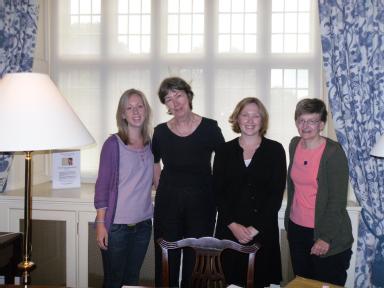Fellowship
Chawton House Library Fellowship
1st June to 31st July 2010

During the second year of my PhD, I was offered a two-month fellowship at Chawton House Library in Hampshire, where I wrote the fourth chapter of my thesis ''By art and not by force': Man-Midwives, Old Women, Women Writers and the Case of Nature verses Medicine' . During this, I explored developments in midwifery during the late eighteenth century, a period of extraordinary change in the fields of biology and medicine. Discoveries in female anatomy led to an eager interest in the construction of the female body, prompting medical men to expand the field in order to incorporate specific investigations into women's health, their bodily functions, pregnancy and childbirth. A new age of obstetrics was brought to birth, with technological developments. Obstetrical instruments, including forceps, hooks, double crotchets, embryotomy sppons an cranioclasts, became widely available— many of them designed to kill the child, in order to preserve the life of the mother. These advances, however, were not always well-received, particularly by female midwives who had hitherto enjoyed an important position within their communities. These women rejected mechanical developments and promoted gentle assistance, as well as providing sensitivity and empathy—a bond that could be shared between women who had given birth.
More specifically, I was interested in the contributions of two influential female poets from this period: Anna Letitia Barbauld, although unable to have children herself, viewed pregnancy and childbirth as something both natural and miraculous; Charlotte Smith, who gave birth twelve times in nineteen years, had quite a different perspective. Her marriage was unhappy and she resented pregnancy and childbirth as extensions of her imprisonment within it. When her own daughter Anna Augusta died shortly after giving birth, she was consumed by bitterness and grief. Childbirth is, therefore, represented as something exceptionally dangerous in Smith's poetry, a journey into the unknown and one that is likely to result in death. The role of nature in this process, however, is central to the poems of both writers. For Barbauld, it is something to be trusted, to be honoured— a balancing force. In Smith's view it is unpredictable and threatening, taking away life at the moment it should bring life to birth.

Fellows at Chawton House Library in June 2010. From left to right: Francesca Scott, Suzan van Dijk, Melissa Sodeman, Susan Allen Ford
